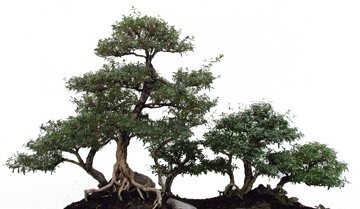The following is from a speech delivered by Elder Albert Marshall in Montreal in November at the conference: Two Countries, One Forest.
The forests of the earth can be viewed from two different perspectives; one being an acknowledgment and celebration of the life given to the forests through the hard labour of the living earth, and one being a view which places value only on the products we humans manufacture from the forests. The first view is inherent in First Nation societies around the globe. The second is a Eurocentric view which predominates in current culture. When we speak of preserving our forests, from these two perspectives, we mean very different things. For someone outside First Nation culture and beliefs, a person means the preservation of the forest industry to serve the wants of people. When we speak from inside First Nation culture and beliefs, we mean the preservation of the forest to provide for our needs.
First Nation people understand the earth to be a living entity, indeed the living Mother upon whom we all depend. The trees work hard to gather their sap, to bloom, to let go of their spring life, and to live again when a new cycle begins. Therefore our economic perspective is based upon a principle not known in other economic systems: gratitude for this work. We understand our place to be one of dependence. We perceive our continued existence to be dependant upon another living being; our Mother the Earth. We recognize a responsibility to live in harmonious way with the life upon which we depend. Our learning then comes from the species around us, who teach us how to live in this harmonious way.
The Eurocentric perspective is quite different. It depends upon forgetting that the earth and forests live. Labour is thought to be the domain of human beings, who therefore bring value to an otherwise valueless entity by virtue of this labour. The place of humans is one of supremacy, and our dependence is upon sustaining an economy of greed. The responsibility is to do well in this economics of greed, to compete as it were, and therefore the teachers are other humans. The products we want, rather than the products we need, become our purpose when we relate to the forests.
In this way, when Europeans came to our land, they flooded our living forests; they cut away all life from our forests, they altered what our Mother the Earth naturally grew to suit their needs. And we, as a First Nation people, grieved for this.
albert@uinr.ca

